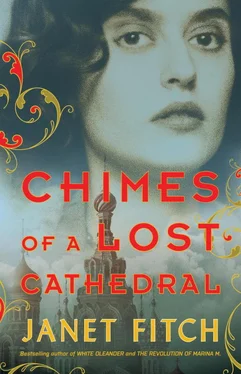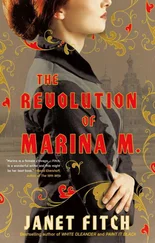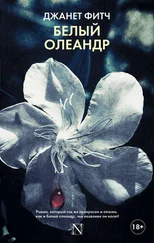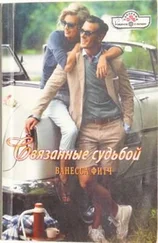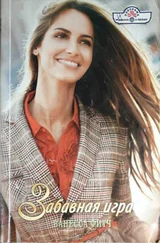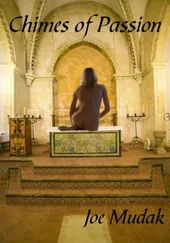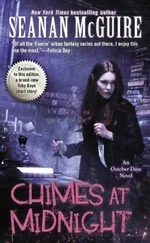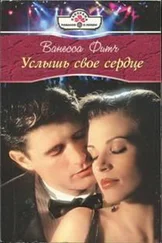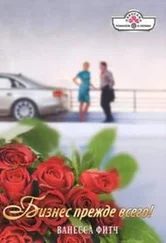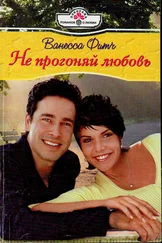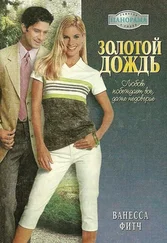We paused on the Kazansky Bridge over the Catherine Canal, and I pointed to the windows of that green-and-gold apartment, from which I’d once gazed out into the falling snow. “That’s where your papa and I made love the first time,” I whispered into her small ear. One of the best things about babies was that you could tell them all your secrets. I hummed “Mi Noche Triste” and danced with her in the empty street—the Argentine tango. Its rhythm, its balances, the changes of direction. She already liked to dance. I remembered how careful we’d been in those old days, not to start a child. It made me laugh—and now, the whole catastrophe!
I felt him here. I knew he could feel me too. In some abandoned palace or hotel in this city, Kolya was living his mysterious life. Maybe at the Astoria, pouring the last of the champagne into hoarded crystal. Or in some decayed flat with elegant old people. I knew he’d feel the change in the air, and sense that I’d come home. The city resonated with our love. I would find him. And then? But I was no seer. I would leave the future to itself.
At the top of Nevsky Prospect, the Admiralty flashed its golden salute, and across the river, the Peter and Paul Fortress returned it. The kino was still here, showing an old Kholodnaya film, the placards faded but the ticket window open. I was shocked, really, that such bourgeois trash would still be playing in the heart of revolutionary Petrograd. And yet, there were other songs than “The Internationale,” other moods. We were more than just units of work, representatives of class. The wily individual was more stubborn than the forces of history, and our needs, our desires, our deepest dreams, would always rear up and run crazily around our lives like a horse escaped from its stall. The soul knew no politics.
Palace Square lay vast and as empty as an old walnut shell, and silent as snipers, the statues on the roof of the Winter Palace scanned the horizon. The Alexander Column looked taller than ever in that empty circle of buildings, shooting up into the pale northern sky. Grass grew between the stones. I passed the Admiralty with its nautical bas-reliefs, its park overgrown, passed the Astoria, and St. Isaac’s Cathedral, along wide Senate Square. I wanted to touch the Neva, and see if Peter yet stood, commanding.
That much had not changed. The man who had created this dream in stone still pointed toward the river. Here I will build my city. His only true child. Peter, marvelous and cruel, who had built it from the swamp, leaving forty thousand dead. Their bones creaked under our feet. Now his dream belonged to the masses. Yet the Bronze Horseman remained. Without a soul left to follow, he kept his post, his great and terrible purpose locked in his implacable heart.
I strolled along the embankment, feasting on the distances and the gallop of the river, the sea air, wind fanning my face, sun-kissed gulls flitting over the water. Sea wind and Neva spray, the ensemble of eternal Petersburg’s classical facades and secret courtyards, shining canals. It was music, it was history, alive despite the silence, perhaps more than before, as now it was mine alone. Not a fishing boat, not even a rowboat, sullied the sparkling surface of the waters. I could feel the Allied blockade just beyond Kronstadt in the gulf. I could see no ships waiting for cargo at the great wharves. We were in quarantine, not from fear of disease but against the contagion of our ideas. I had not forgotten the gloomy news from the Germans on the train to Vyatka—the failure of the Soviets, the death of Rosa Luxemburg. Yet all that could change in a day. The English were backing away from the Whites. Then I remembered who had told me that.
Soldiers did worse on the field of battle, I told myself. In the world’s eyes, the Chekist was just someone who died, fell off a train. Iskra, will you judge me someday? I hoped her times would be much milder. I was not going to chastise myself for lack of feeling. Things happened to people in this world, they disappeared, they were arrested, they were packed off in work parties, conscripted, shoved into provisioning units, they died in childbirth. They got typhoid and typhus, they drank bad water and worse. The Chekist had had the bad luck to run into me. Which of us controls his own fate?
I held her upright, taking care not to hurt her arm, so she could better see the wide, whitecapped river, the university, the Sphinx. “She’s from Egypt, lisichka. Very old and very wise.” She always seemed to understand everything I said, waving her little fingers, exploring my kerchief, my collar. I chewed on her fingers. Sometimes I wanted to bite her. I could see why there were so many fairy tales about witches eating children, you really wanted to. I turned around so she could look over my shoulder and pointed to the Strelka, its two red Rostral Columns with green verdigris prows. “When I was a boy, I climbed way up there.”
How would she understand the strangeness of my life? She blinked her long coppery eyelashes and made squirrel sounds that turned me to jelly. What she had been through already.
I was sad that she would never know Petersburg as I’d known it, as my parents had known it, my grandparents.
On the other hand, she would never be subject to an imperial will, she’d have no idea what that meant—the entire country at the whim of one person, the aristocracy chewing up the wealth of the nation. She would not take her privileges at anyone’s expense. She would vote, make decisions without the interference of fathers and husbands and tsars. What were ice creams and drawing rooms, Orenburg blankets, compared to that? To her, our lives would be as archaic and unimaginable as that which gave birth to the Sphinx.
We just had to live through this time. She gazed into my face as into a tree, her trust absolute in this nineteen-year-old holding her. My Soviet girl. She would be so modern, the life she would live was unimaginable. How dare I be teary for Pears soap and the tango? I sighed. No matter how revolutionary I thought I’d become, my ideas, my beliefs, my very bones, had been marrowed in that old world. It would take another generation to breed these predilections out of us, do away with nostalgia and tangos—perhaps even passion itself.
Though I couldn’t imagine that a daughter of my blood and Kolya’s would manage to stay free of that curse.
She started to whimper and fret, and I felt my breasts let down their milk in plain view of Peter the Great. I took advantage of the city’s emptiness to nurse her up against its foundation rock. She wasn’t a fast nurser. She liked to finger my skin, my dress, her eyes closing in blissful reverie. I leaned back on the warm stone. I felt like I was living in a dream of Petrograd where all the people had disappeared.
The thing was to find Kolya, tell him that I was ready to reconsider my decision to leave him. Anyone else would call it quixotic, and perhaps it was. I hummed to Iskra as I nursed her. I thought she’d fallen asleep, but then felt the gurgle, and knew what was next—allowing me the strange experience of walking down the stone steps of the Neva to wash a baby’s diaper. What a poor example of Soviet hygiene! Like a peasant woman, I rubbed her laundry on the stones, draped the cloth to dry in the sun. It was heaven to sit on sun-warmed granite by the mother-river in the honeyed light. We slept for a while there, under Peter’s disapproving watch. Go! his pointing arm commanded—but he was bronze and I was flesh, and in this, flesh emerged triumphant.
Afterward, we walked down to the English Embankment, in search of a certain yellow mansion. It was smaller than I remembered it but its facade glowed like sun through a spoonful of syrup. I tried the street door—locked… but perhaps the service entrance off Galernaya Street, in the back, might be open. From that street, I easily found the courtyard—the big gate was showily padlocked, but the smaller one gave way. The yard was a filthy hole now, filled with all kinds of junk. No sign of black horses, as on that terrible morning when he left me. Go back to your poet. Those giant blacks that were in fact Arkady’s.
Читать дальше
